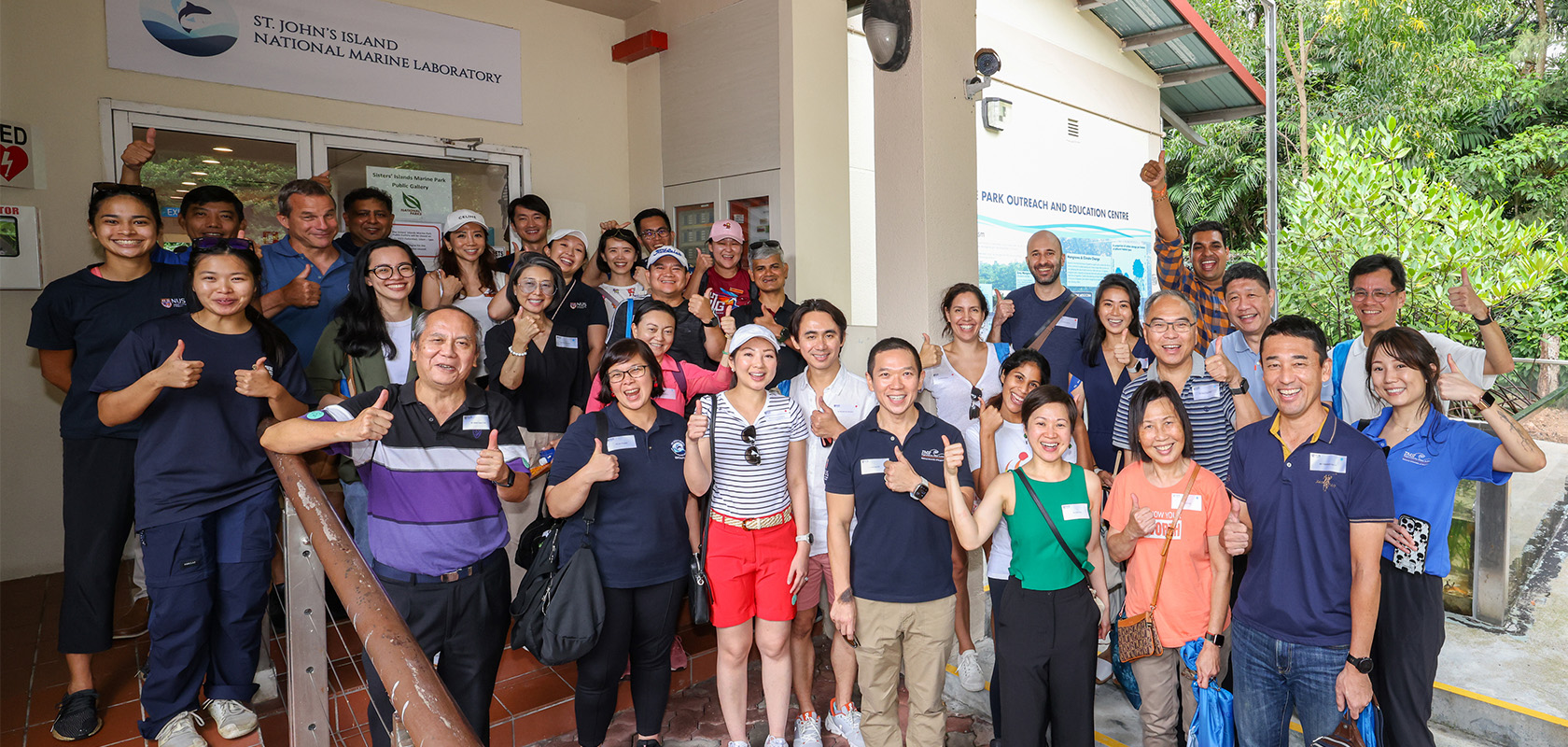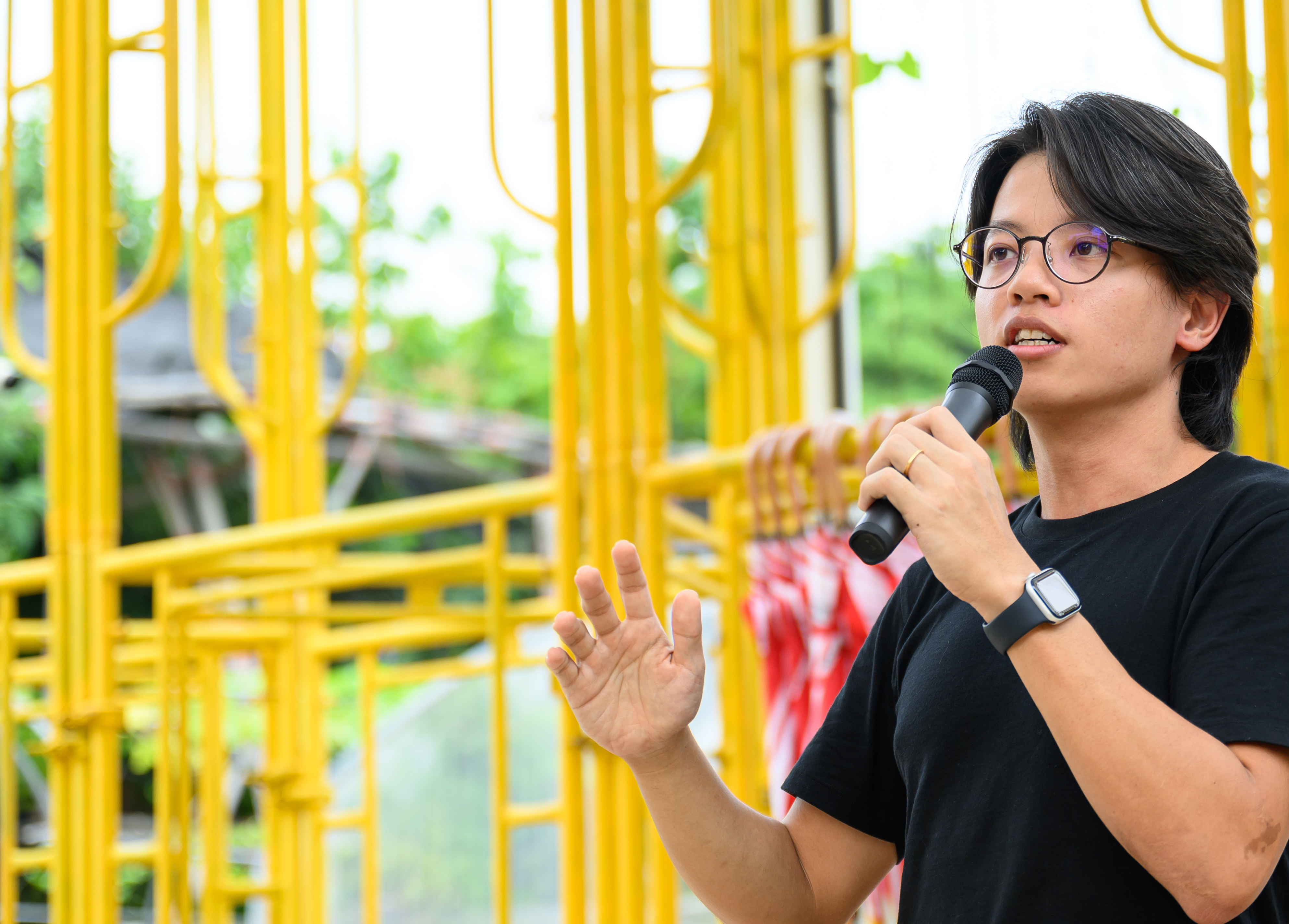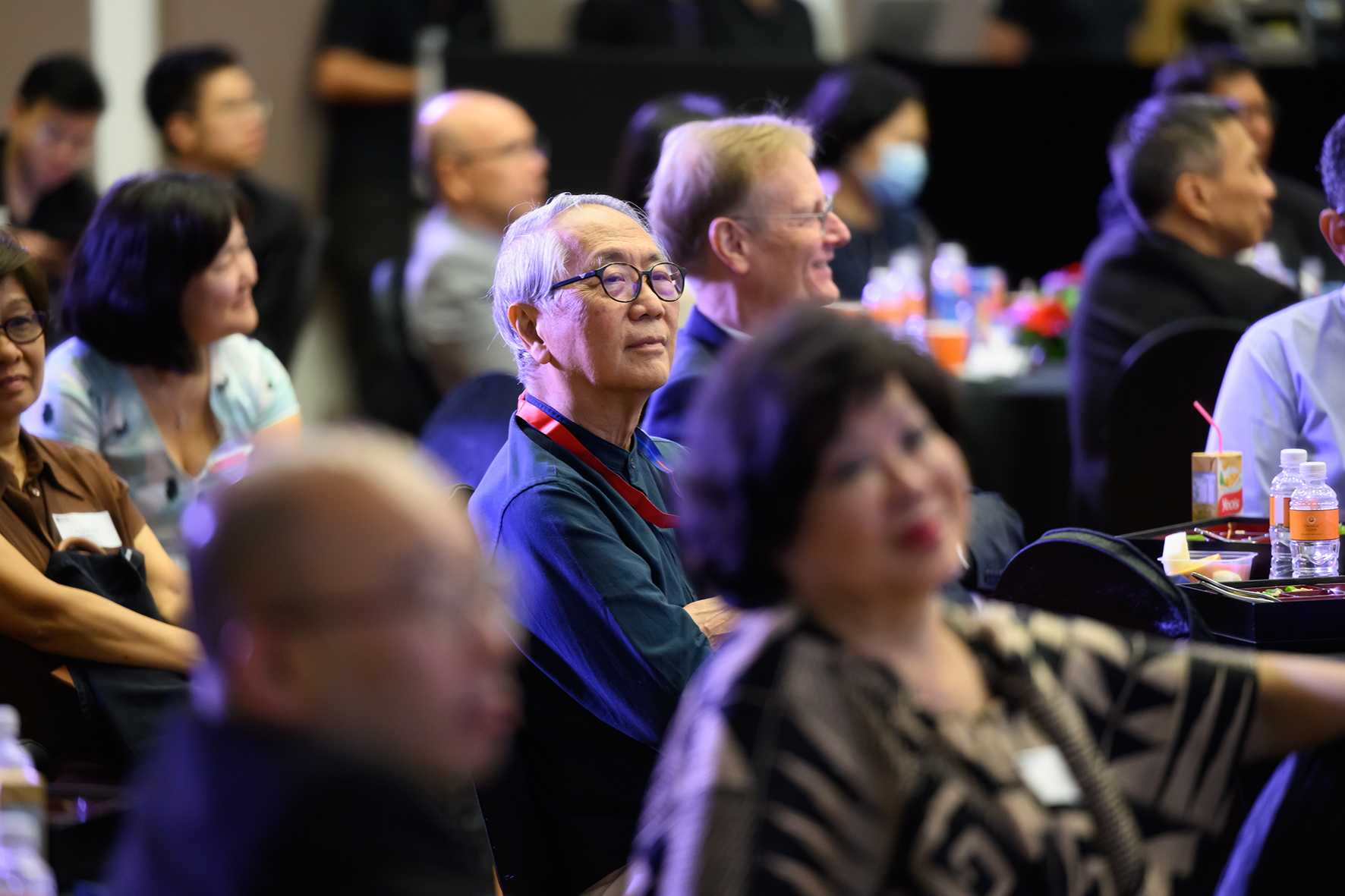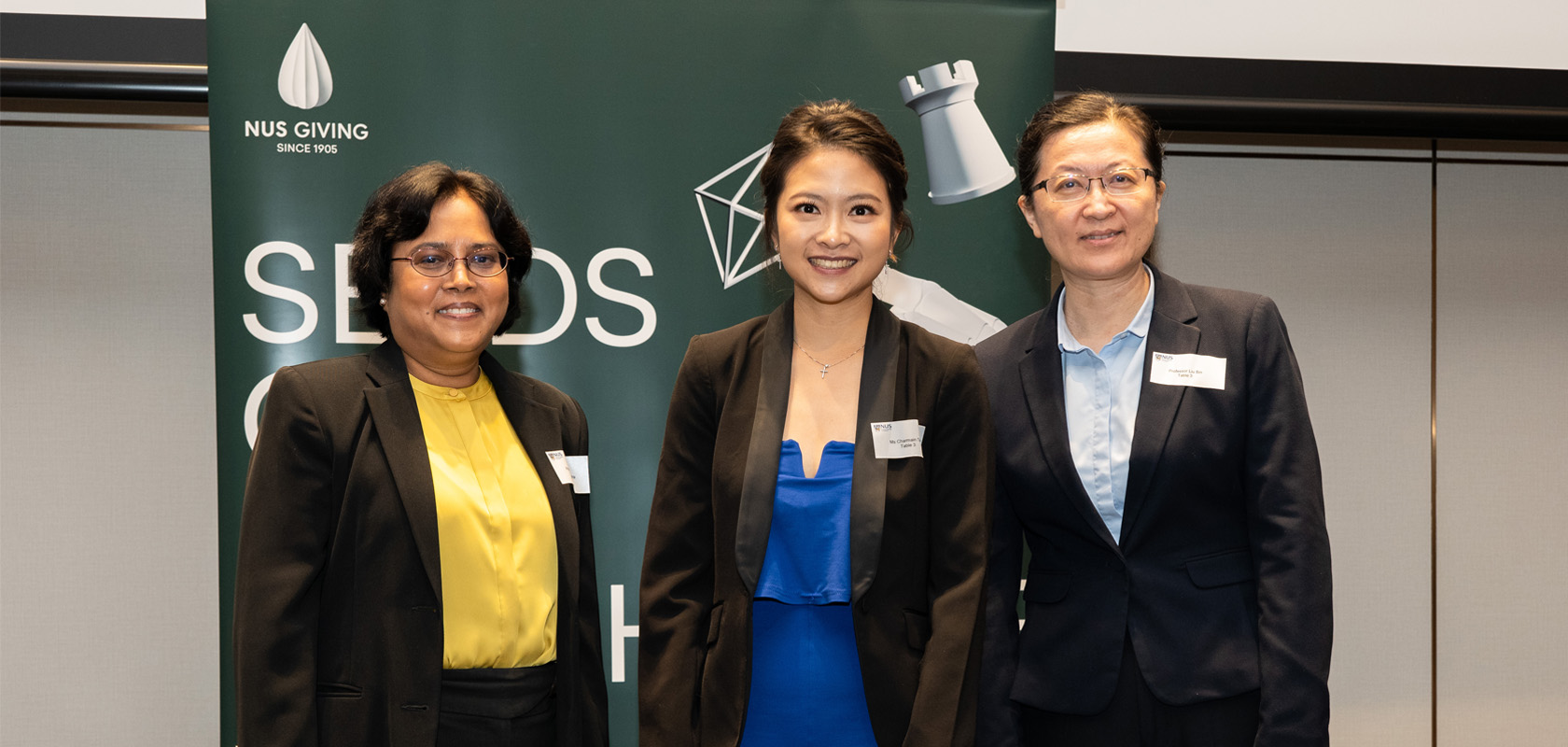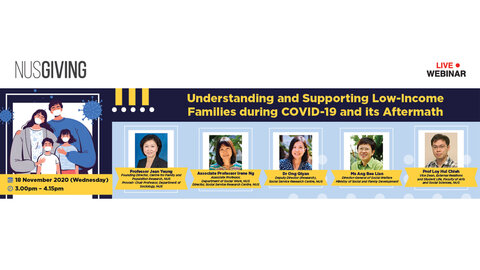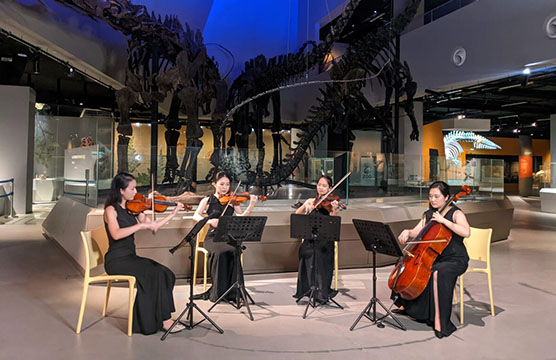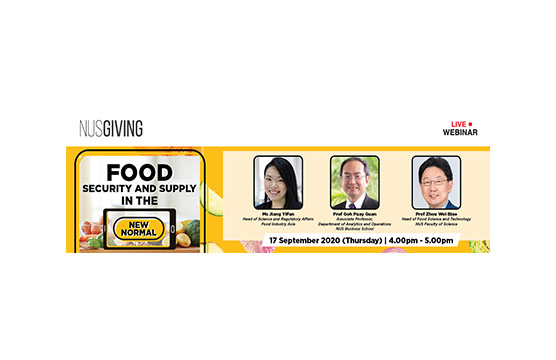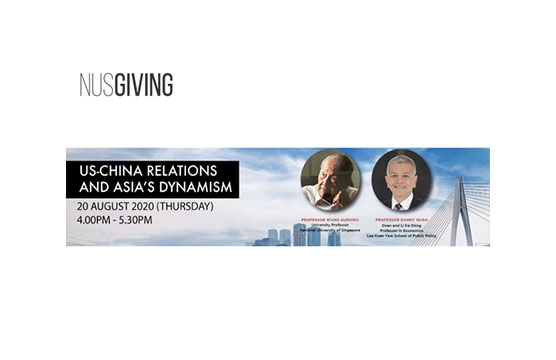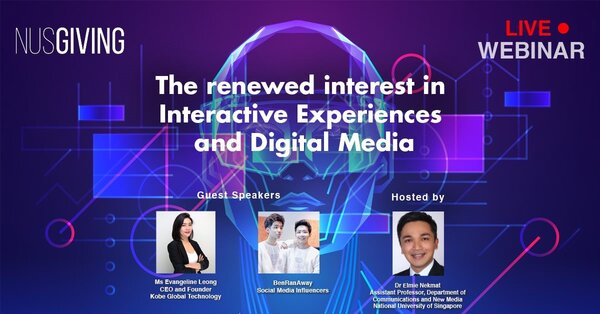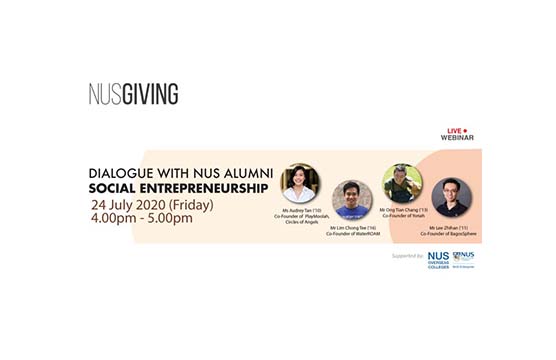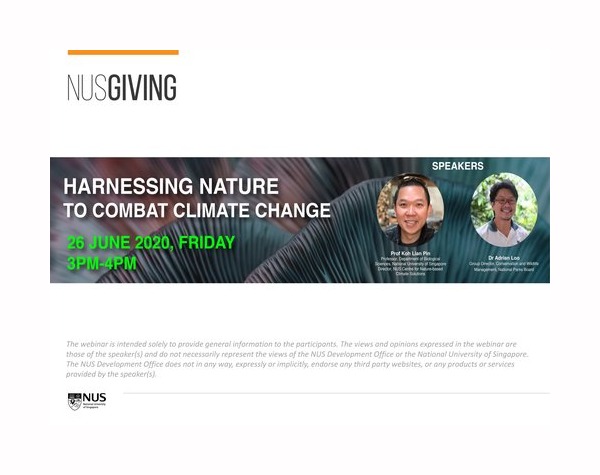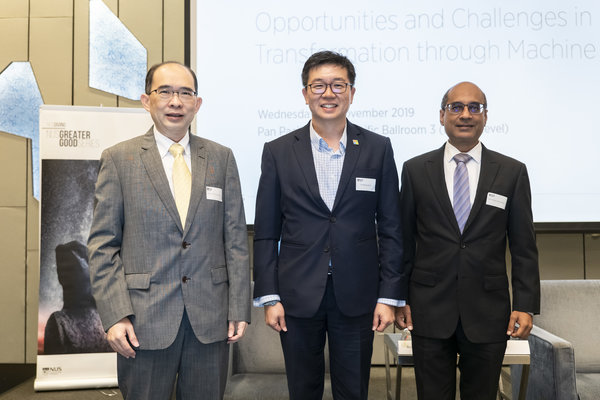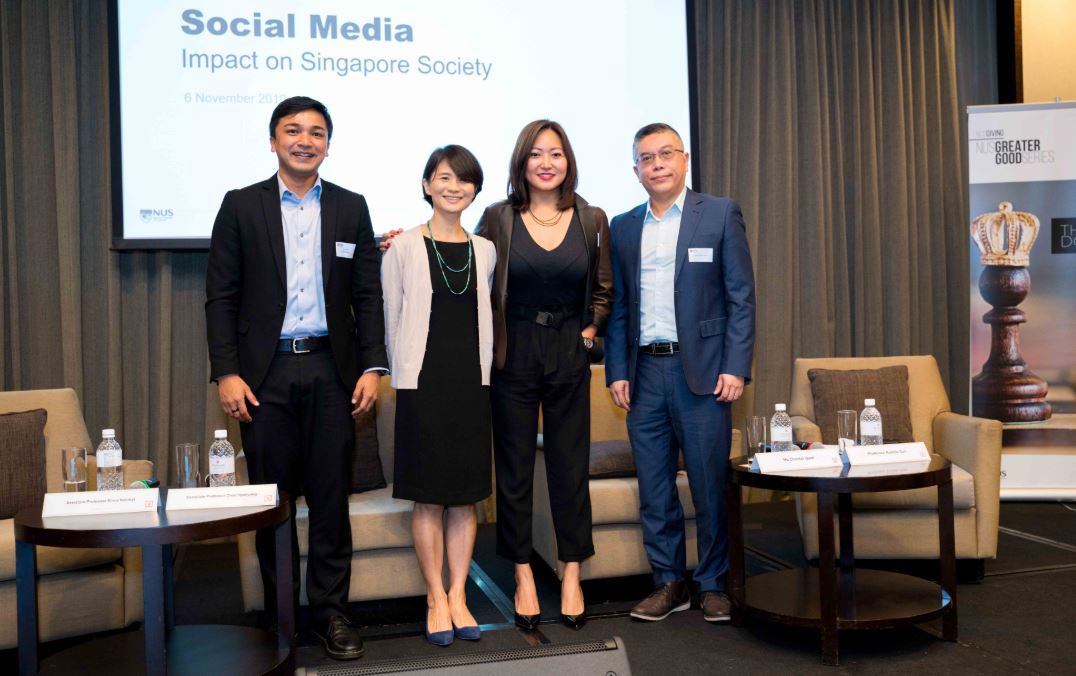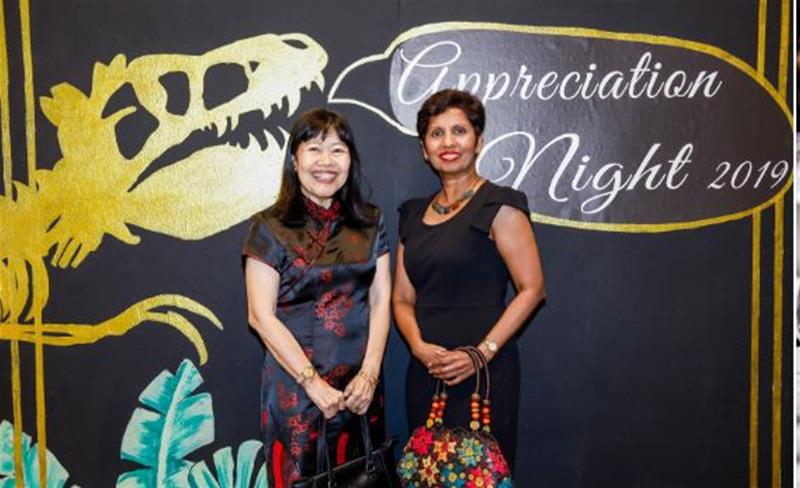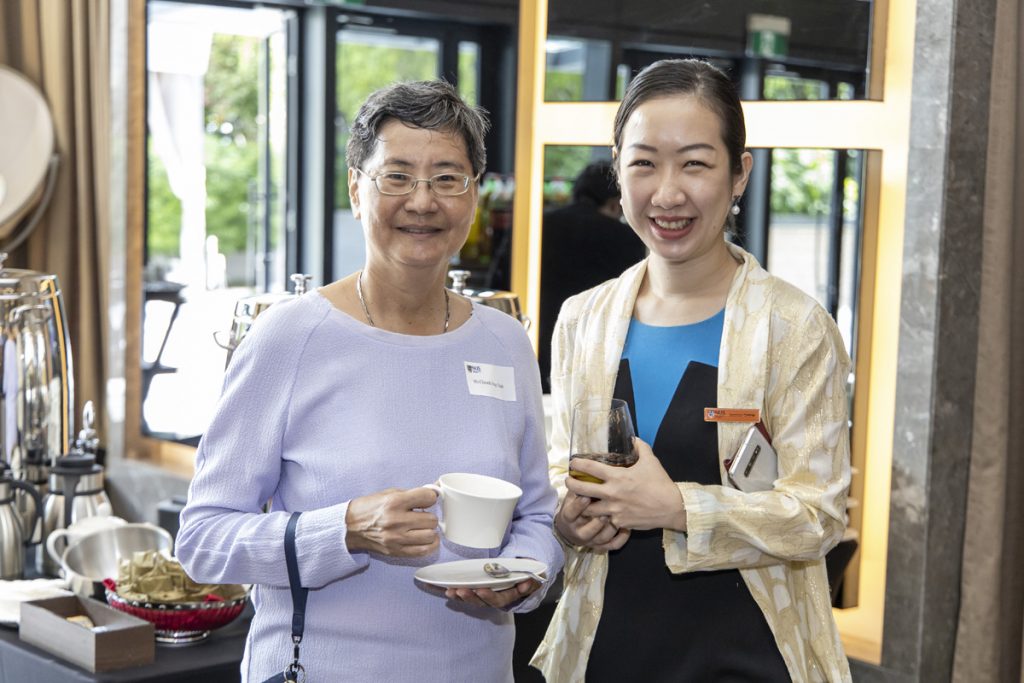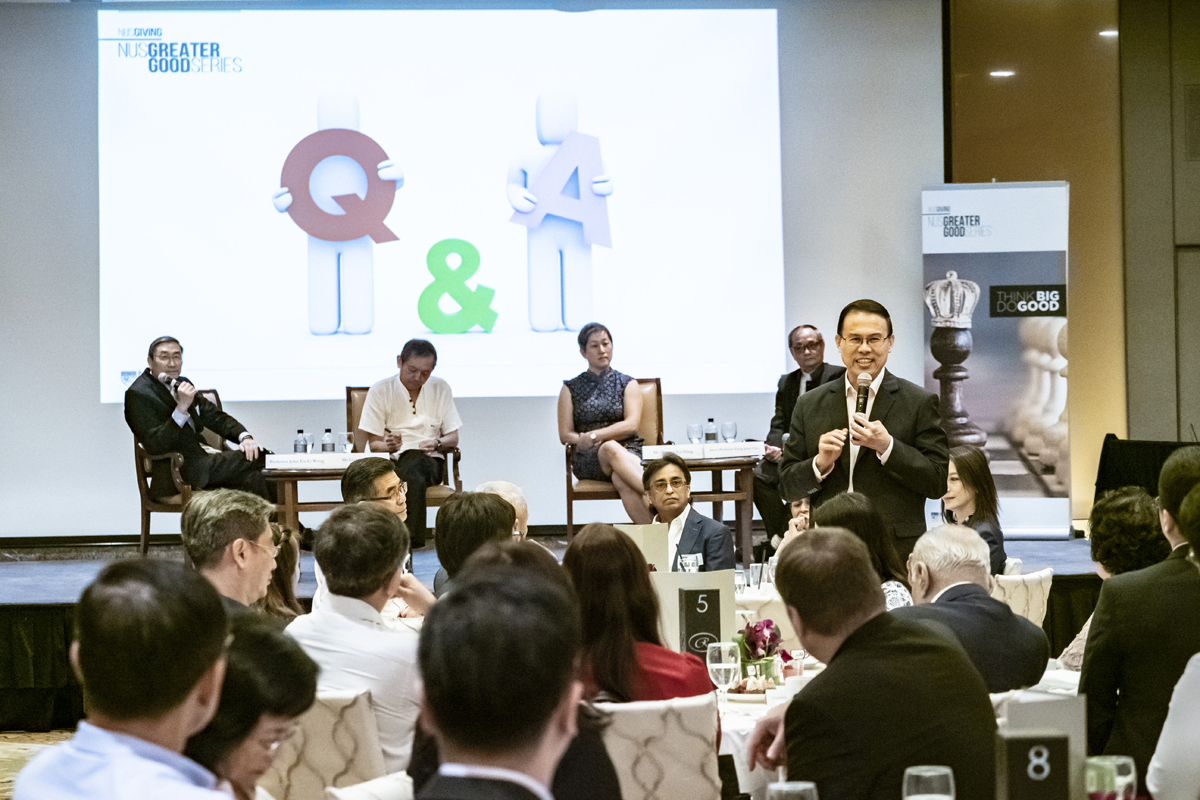NUS Giving Webinar Series – Pay It Forward Conversation
Sep 9, 2020
Often, an act of kindness can go on to create huge waves of impact

To pay it forward is to pass on an act of kindness after receiving a good deed and in turn, spreading kindness to more people as a result.
Often, an act of kindness can go on to create huge waves of impact.
During the NUS Giving Webinar Series titled the Pay It Forward Conversation, two speakers share their personal stories on how the generosity of others has transformed their lives in numerous aspects, and like a wave, how the impact of philanthropy continues to influence and benefit them and the people around them today.
“Growing up in the 1960s, I was surrounded by educators (my parents), books and the media. After my mother took early retirement, my father was the sole earner, supporting a household of seven people along with the dogs, chickens, ducks and a few other creatures. I had a happy childhood,” shared Prof Walter Woon (’81), David Marshall Professor at the National University of Singapore (NUS) Faculty of Law (NUS Law) and the Dean of the Singapore Institute of Legal Education.
“I received financial help for my education from many organisations through scholarships. One was a DBS scholarship to read law at NUS and then later on, a Commonealth Scholarship to attend Cambridge University – without which I would not have been able to go at all,” Prof Walter Woon continued.
The power of education is that it is the single most effective and sustainable tool for making a real difference. Education reduces poverty, enables upward social mobility and helps communities improve their standard of living. For many students in need, financial aid helps open doors to a global education which is life-changing for many students and their families.
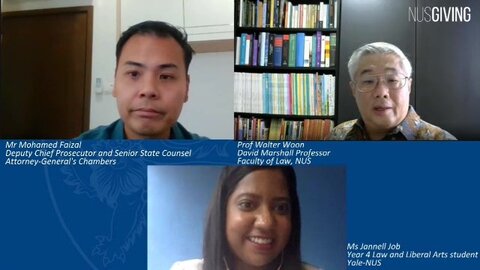
The notion of education as a massive social leveller was echoed by Mr Mohamed Faizal Mohamed Abdul Kadir (’05), Deputy Chief Prosecutor and Senior State Counsel at the Attorney-General’s Chambers. Mr Mohamed Faizal, went on to describe his experience at NUS Law and how it has shaped him.
“My journey at NUS Law was an extremely positive one. The four years of education were immensely challenging and enjoyable in equal aspect. I was blessed to receive considerable financial support as a university student and it made a world of difference for me. The many pairs of helping hands are a large part of who I am today and why I am in a privileged position of being able to help others now. My time in NUS was deeply meaningful and helped form my own philosophy of giving back.”
Mr Mohamed Faizal kick-started The Phoenix Grant, his first structural financial gift at NUS. Fuelled by his own experiences during his time in neighbourhood schools, the Phoenix Grant is one of various scholarship and grant programmes that he set up in secondary schools, junior colleges as well as a special-needs school in the time since graduation.
His statement resonated greatly with Ms Jannell Natasha Job (’22), NUS Law and Liberal Arts student, recipient of the Yale-NUS Global Leader Scholarship and moderator of the webinar.
Sharing her own personal experience, Ms Jannell Job agreed that a lot of who she is today and what she has achieved is because of the generous donations kindly made by the donors. Receiving a scholarship has enabled her to pursue her passion in psychology and law while lifting the financial burdens that would otherwise be placed on her parents.
“I’m immensely grateful for it. I actively give back through volunteering and community service,” shared Ms Jannell Job.
Prof Woon has also become a donor himself and continues to give back to NUS Law by returning to his alma mater as a Professor.
“This is coming back to my natural habitat. Law practice is a lot more lucrative but you’re only helping a small number of people. By passing on knowledge to the next generation, I hope there can be an exponential growth in people benefitting starting from the students, then the law firms and hopefully the whole of Singapore,” remarked Prof Woon.
When asked on the impact that they hope to see within the community as a result of their gifts, both Prof Woon and Mr Mohamed Faizal shared similar sentiments.
Mr Mohamed Faizal concluded, “It is my hope that when those students go out there and when they are successful, they will pay it forward in their own ways. It doesn’t always have to be about money. Those who can’t give back in the form of finances, can give back in terms of time, like volunteering. It’s about thinking how each of us can contribute to this entire ecosystem that we call Singapore.”
For further information on the NUS Giving Webinar Series, contact the Events team at dvoevents@nus.edu.sg.

